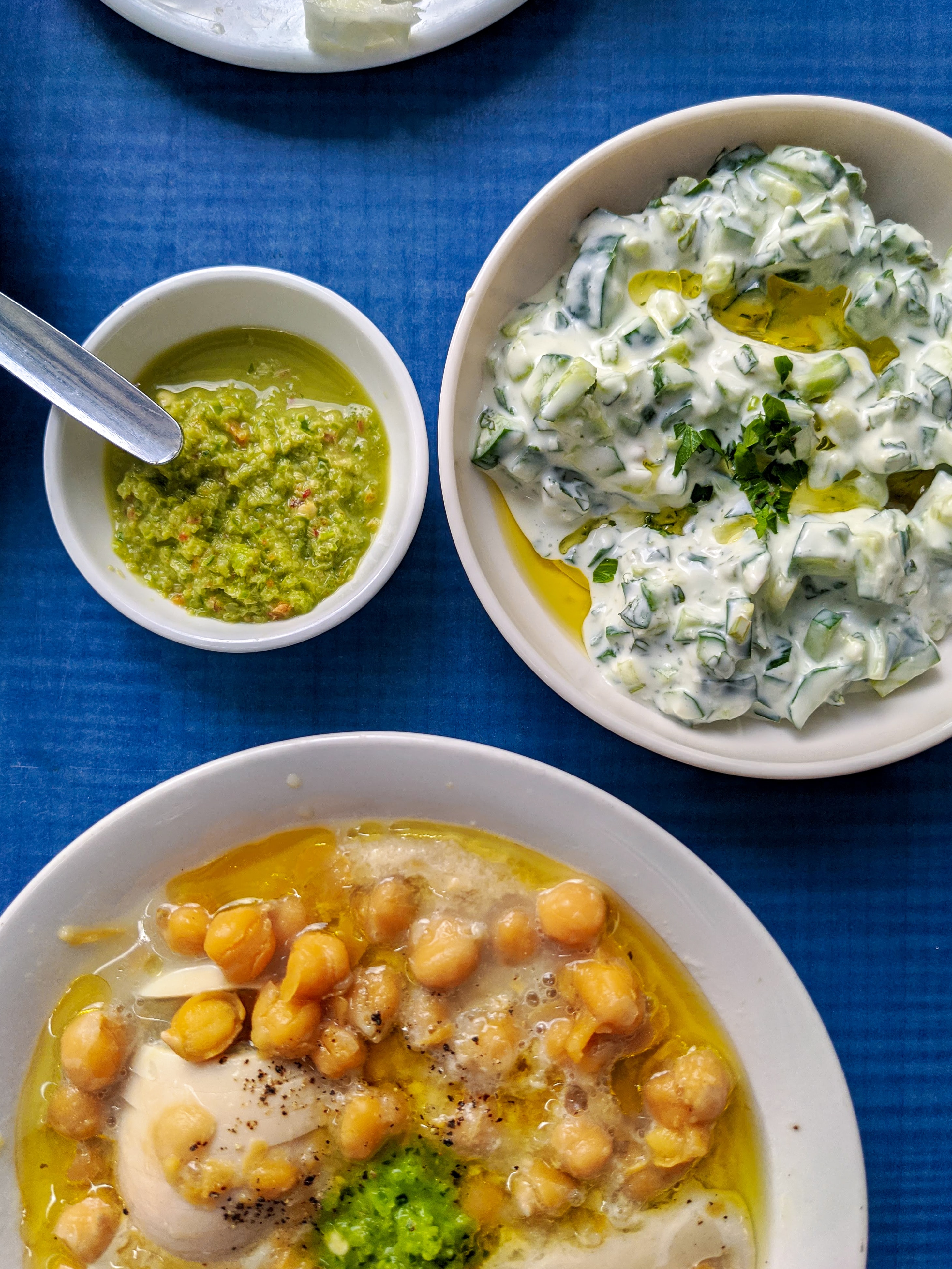Talking about Israeli cuisine is inherently political. Some call it Israeli, others call it Middle-Eastern, Lebanese, a fusion of Arabic dishes with Yemeni, Ashkenazi and Sephardic traditions. Food in Israel expands much beyond its 22,145 km².
A food explorer’s day in Tel Aviv will begin with top-notch coffee from one of the many specialty coffee shops in town, accompanied by a savory boreka (phyllo dough filled with spinach, cheese or meat), or a sweet rugelagh (think of a smaller, denser chocolate and cinnamon-y croissant) or slice of babka (challah dough with chocolate or praline swirled throughout). A sit down breakfast likely includes shakshuka, the most simple yet divine combination of eggs poached in a spiced tomato and bell pepper sauce. And the bread ! Of course, the bread. Jerusalem bagels are a lighter, more elegant version of their New York counterparts (I realize this is a contentious statement, happy to discuss). Coated in sesame seeds, they are to be enjoyed plain or as a sandwich. Sesame is the star of many dishes: as tahini incorporated into most sauces or pureed with sugar to be enjoyed as halva in baked goods and on its lonesome for a sweet snack.
More on bread… Pita is the vessel used to consume silky hummus, labne (extra-strained Greek yogurt, seasoned), or eggplant dip. Pita and laffa breads are also the pockets for some of the more delicious sandwiches this world has to offer: falafel, shawarma, sabich.
While delicious grilled meats and fish can be enjoyed at Tel Avivian restaurants, the city is also one of the most vegan-friendly in the world. The vegetable-centric cuisine in Israel has, I imagine, influenced the prevalence of the vegan movement here.
Must-dos in Tel Aviv include eating Hakosem’s sizable shawarma and falafel, wandering the food stalls of Carmel Market, eating a late-night sandwich at Jasmino (until 2:30am) or giant slice of pizza at legendary Pizza Mount Sinai (made by teenagers until 3am with a loud techno music backdrop), a bureka from Pepo’s and pastries from Delicatessen near Abraham Hostel.
P.S.: Though you should really be focused on exploring the local food scene, McDonald’s in Israel is a cultural experience in itself. The restaurants are part of the 50% of Tel Aviv establishments to operate Kosher kitchens: there is no cheeseburger on the menu and you have to place separate orders for meat and dairy items (making you think twice about getting that McFlurry).
